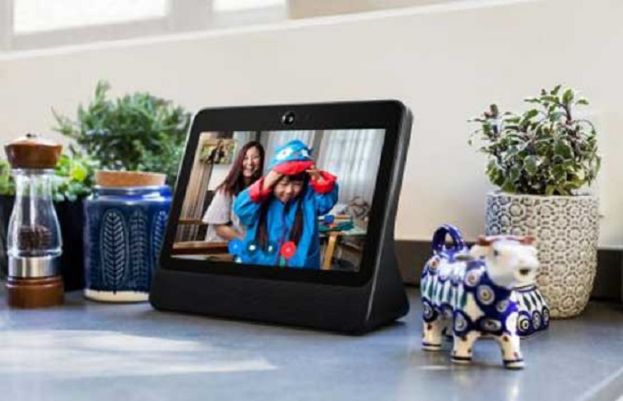
"It’s been a big shift for the company," Facebook’s vice president of consumer hardware Andrew Bosworth told AFP before the launch of "Portal".
"We’ve seen a rise of video calling, on both Messenger and WhatsApp -- it has been a tremendous trend," he said.
The device, which will be available for pre-order in the United States from Monday, is designed to allow users to make video calls at home without having to stand immediately in front of the screen or hold a phone at arm’s length.
But the launch of a product putting a camera into homes is likely to raise privacy issues for the social media giant, which has suffered several data breaches this year involving tens of millions of user accounts.
Although Facebook acquired virtual reality headset manufacturer Oculus in 2014, this is the first time it has developed a consumer hardware product in-house.
‘Hey Portal’
Offering hands-free voice control, Portal comes in two sizes, a 10-inch screen which retails at $199 (173 euros) and a 15-inch version will go for $349. And to start the call, all it takes is: "Hey Portal."
During calls, it can also play music on Spotify as well as tell children stories via augmented effects app Story Time.
And it also comes bundled with Amazon’s voice interface "Alexa", enabling users to shop or control household appliances.
During a conversation, the integrated camera can automatically zoom out to include a second person, or be instructed to follow a certain individual as they walk around.
Facebook has moved to quickly allay security fears, saying that by keeping the processes on the actual device rather than in the cloud, the risk of hacking is lower than with a smartphone or computer.
Calls will be encrypted, and the AI technology runs locally on Portal, not on Facebook servers. It only sends voice commands to the servers after hearing, "Hey Portal".
The camera can be blocked by a cover and the device has a button for disabling both the lens and the microphone.
A guarantor of privacy?
Security is a sensitive issue for Facebook which had 50 million of its user accounts breached by hackers last month.
Earlier in the year, it was forced to admit the personal data of tens of millions of users had been hijacked by Cambridge Analytica (CA), a British firm working for Donald Trump in 2016.
CA is accused of collecting and exploiting users’ personal data for political purposes without their consent.
Facebook has since reasserted itself as a guarantor of privacy.
"Frankly if we don’t build the hardware, I do have concerns," Bosworth said. "You need to have abuse prevention very early on, you need to have security built in early on."
A cautious welcome
The company worked with a US film director in order to make the camera movements feel natural, said Nick Fell, marketing director for the Portal team.
"We set out to try and make video calling so good that it feels like you’re sharing the same physical space as someone else," he said.
Facebook representatives prefer to talk about their "mission" rather than business models and profits, but wireless speakers and video calls are a growing market.
There were 17 billion video calls on Messenger in 2017, double the number in 2016, according to official data.
Analysts reacted cautiously to the announcement, saying Facebook was late to the smart speaker market. But the technology may be a good move for future investments.
"From a market perspective there’s a good argument that for consumers, smart speakers and digital assistants are a crucial part of the future," said Tom Morrod, a research director for consumer electronics and telecoms at IHS Markit.
"They’re the AI centrepoint of digital life or digital home. That’s why it’s a strategically important thing for Facebook to be doing."
from Science & Technology - SUCH TV - SUCH TV https://ift.tt/2pGM5SC


No comments:
Post a Comment